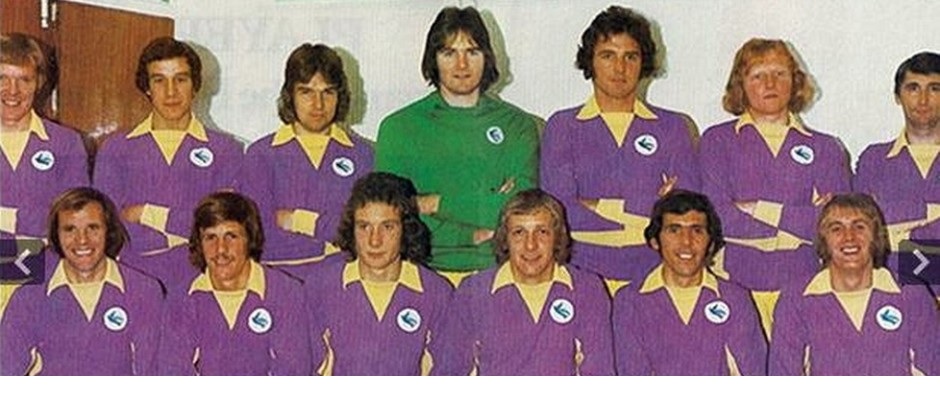
The World Cup continues after Wales’ dismal and disappointing campaign and, until Tuesday, I would have said England represented Europe’s best chance of maintaining their recent stranglehold on the title of world’s best. However, after watching Portugal’s breathtaking 6-1 humbling of a decent Swiss side that has always been solid, hard to beat competitors in the major tournaments before making their exit at the last sixteen or last eight stage, I’m not as sure about that as I was. Either way, Brazil look the team to beat for me at this stage.
However, Saturday sees a return to competitive action for City when they go to Stoke for their first Championship game in four weeks. When club games ceased for the mid season break, the hope was that international football would provide a lift from the gloom of City’s relegation struggle, well, that didn’t work, so can we hope for an uplift now from the Championship’s lowest scoring team?
Fixtures have continued for City’s age group sides during the first team’s break and results have generally been good with the women’s team also maintaining their unbeaten record this season – the prolific Phoebe Poole rescuing a 1-1 draw for them at Swansea on Sunday. Add to that an encouraging performance in the Peter Whittingham memorial match with Villa where the likes of Kion Etete and Ollie Tanner made a good impression and there are reasons for encouragement going into the game with Stoke at a ground where we’re done pretty well in recent visits.
The return of club football also sees the comeback of the seven decades quiz which soldiers on with the same format as usual – questions going back to the 60s about our latest opponents with the answers to be posted on here the day after the game is played.
60s. Can you name the Stoke defender who suffered a defeat in his one encounter against City in this decade, who scored a hat trick for the Potters during his thirteen years at the club and took charge of two countries during a seventeen year management career?
70s. Who am I describing? Born in Johannesburg, this forward was coached by ex Stoke player George Eastham while he was at Hellenic, a club based in Cape Town. When Eastham became Stoke manager during this decade, he moved to sign this player from Los Angeles Aztecs, but, according to Wikipedia, he had an “awful” time of it in England. He only played twice for Stoke’s first team with one of those appearances coming in a defeat by City and, after, just two months, he returned to South Africa. He was the subject of a biography in 2011, but, according to Amazon, you’ve little chance of finding a copy now.
80s. Satisfy moorland by the sound of it to produce ex Stoke and Cardiff man.
90s. Watch cobra nestle down to emerge as midfielder. (4,7)
00s. Starting out under Brian Flynn’s management, this midfielder played in two of the six towns and cost the first of them almost half a million pounds when they signed him. Two years later, the transfer fee did hit the £500,000 mark when he moved the relatively short distance to a junction before his Bosman move to Stoke. A regular in Stoke teams that faced City during this decade, he had his successes, but lost more than he won against us, before a move to the capital to play for an unpopular club and a return to the Potteries to finish. Who am I describing?
10s. Dwindle and grovel are hardly the words you’d use to describe him, but there is a connection!
20s. Wish for ossein reduction? Apologies for this one!
Answers.
60s. Central defender Bill Asprey was at Stoke for thirteen years before leaving for Oldham in 1966. Asprey, who finished his playing career with a short spell at Port Vale, scored a hat trick in a 5-2 win over Charlton in January 1961, but nine months earlier, he was on the losing side at the Victoria Ground as City closed in on promotion to the First Division with a 1-0 win. Asprey managed Stoke for a spell in the eighties, but, before that, he took charge of Rhodesia and then Syria during the seventies.
70s. Desmond Backos was in the Stoke side beaten 2-0 at Ninian Park on Bonfire night 1977 – he only made one other appearance for Stoke.
80s. Phil Heath.
90s. Carl Beeston.
00s.Dave Brammer started his career with Wrexham before signing for Port Vale and then Crewe. He joined Stoke in 2004 and was usually in their side when they faced City over the next three years. Brammer joined Millwall next and, after a loan move back to Port Vale, he signed for them on a permanent basis to finish a sixteen year career which saw him play for them four hundred and fifty league matches.
10s. Peter Crouch.
20s. Will Smallbone.



